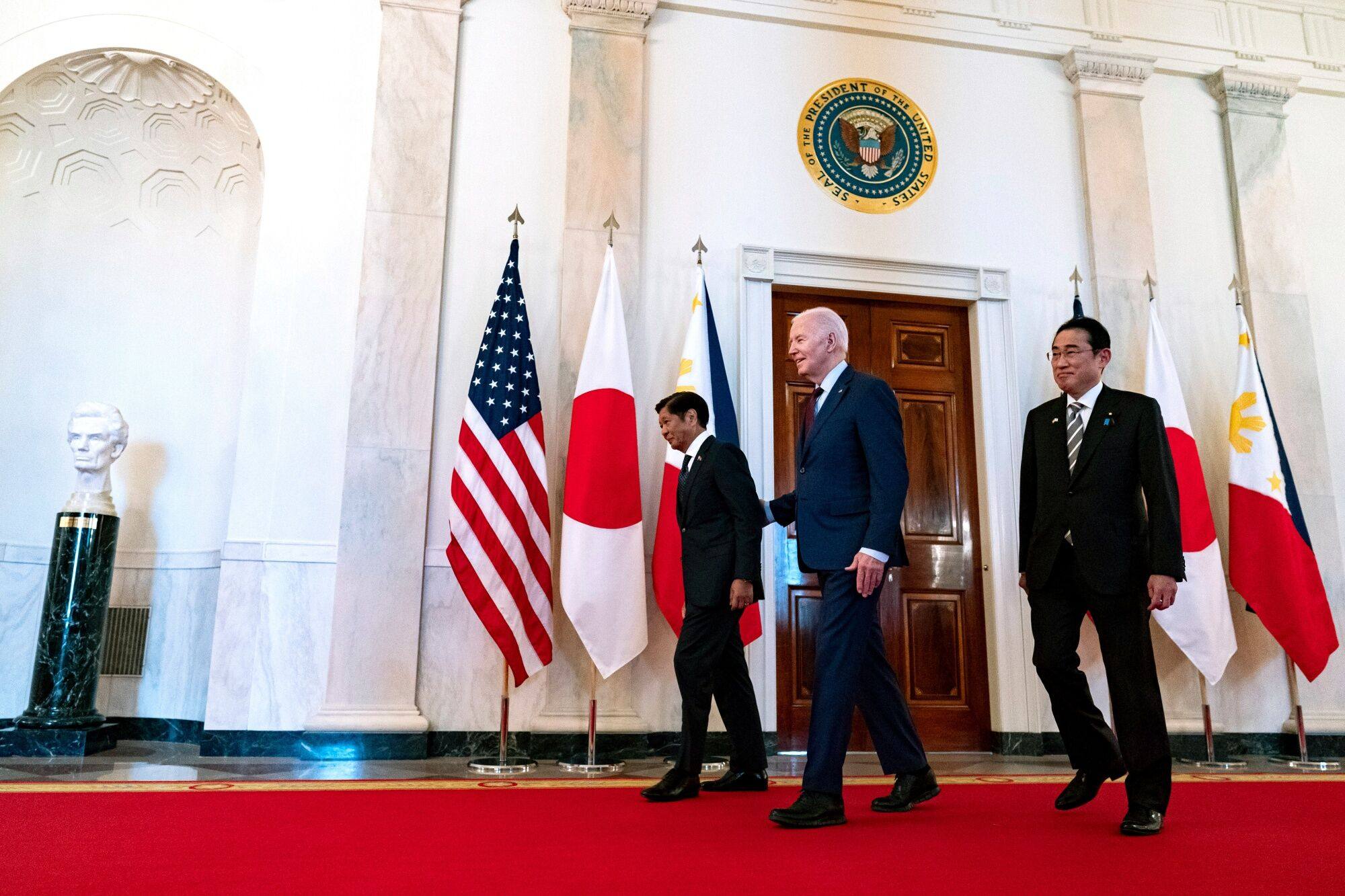Ex-Trump adviser says China’s clash with Philippines is ‘dress rehearsal’ for Taiwan attack
“They’re doing it on a little tiny model of Taiwan, which is this little island … that is not, by itself, a major, geo-strategically important spot,” he said, adding that Beijing is “trying to demonstrate that they can blockade, create a sense of futility and discredit the idea that the United States is going to help not only the Philippines but by extension Taiwan”.
Manila and Beijing have been locked in a months-long territorial row in the South China Sea, with the latest skirmish last month between the Philippine navy and the Chinese coastguard. The melee caused injuries to several Filipinos, including a sailor who lost a finger.
Philippine forces were on a resupply mission to the BRP Sierra Madre, a World War II vessel deliberately grounded on the Second Thomas Shoal in 1999 and occupied by their fellow troops. The flashpoint is known to Manila as the Ayungin Shoal; Beijing calls it Renai Jiao. Both sides claim it is a part of their maritime territory.
That should only happen “if President [Ferdinand] Marcos [Jnr], and in discussion with President Biden, decide that that would be the best course”, he said. “I’m not saying that means we go to war. I’m saying we need to acknowledge … what’s happening and start imposing much more serious costs” on Beijing.
When asked about the possibility of joint US-Philippine resupply missions in the South China Sea, Pottinger said: “We should be ready to do that. I hope we’re ready to do that. It’s sort of a ‘Berlin airlift’ to keep ... those Philippine marines on Second Thomas Shoal and on some of these other islands supplied.”
Beijing’s embassy in Washington did not immediate respond to a request for comment on his remarks.

Convened in Geneva, Switzerland, in May, Pottinger contended that “those talks are not being taken seriously by the Chinese side”.
“They sent a couple of foreign ministry mid-level officials to the first round of talks, [and] didn’t have anyone prepared to talk seriously about our concerns,” he said.
The Chinese delegation was led by Yang Tao, director general of the foreign ministry’s North American and Oceanian affairs department, and included officials from the science and technology ministry, the National Development and Reform Commission and other government agencies.
Tarun Chhabra, special assistant to the president and senior director for technology and national security at the National Security Council, and Seth Center, the State Department’s acting special envoy for critical and emerging technology, led the US side, with Commerce Department officials also present.
Speaking a Council on Foreign Relations event in Washington, US Deputy Secretary of State Kurt Campbell said “both nations understand, on some level, some of the challenges that AI presents to military command and control”.
In a separate discussion at the same event, Chhabra said Beijing did not agree with American policy on the issue.